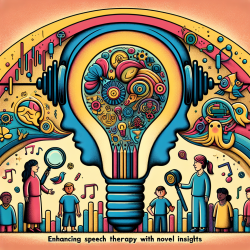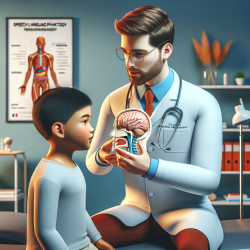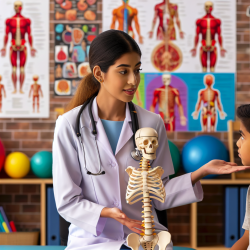Introduction
As Special Education Directors, we constantly strive to enhance our skills and knowledge to better serve our students. A recent study titled College Students’ Views on Functional, Interactive and Critical Nutrition Literacy: A Qualitative Study provides valuable insights that can be applied to improve our practices, especially in the realm of nutrition literacy. Understanding how nutrition literacy impacts dietary decisions can significantly influence therapy outcomes, particularly in educational settings.
Understanding Nutrition Literacy
Nutrition literacy is a multifaceted concept that encompasses three main domains: functional, interactive, and critical literacy. The study conducted by McNamara et al. (2021) highlights how these domains affect college students' food choices, offering a framework that can be adapted for use in therapy settings.
- Functional Literacy: This involves the ability to obtain, understand, and use factual health information. In therapy, this could translate to educating students on basic nutrition facts and how these impact their health.
- Interactive Literacy: This focuses on the ability to act effectively to improve health and communicate relevant health information. Therapists can leverage this by creating interactive sessions where students engage in discussions about healthy eating and its benefits.
- Critical Literacy: This involves critically assessing health information and advocating for a healthier environment. Encouraging students to question and evaluate the nutritional information they encounter can foster critical thinking skills.
Applying Nutrition Literacy in Therapy
By incorporating the findings from this study, therapists can enhance their practice in several ways:
- Educational Workshops: Organize workshops that focus on teaching students about nutrition literacy. Use real-world examples to illustrate how nutrition impacts health and learning.
- Interactive Sessions: Create interactive activities that encourage students to explore and discuss their food choices. This can help them understand the importance of nutrition in a practical context.
- Critical Thinking Exercises: Develop exercises that challenge students to critically evaluate the nutritional information they receive from various sources, fostering a deeper understanding and skepticism of marketing claims.
Encouraging Further Research
The study also emphasizes the need for further research to quantitatively assess young adults' nutrition literacy and its impact on diet quality. As practitioners, staying informed about the latest research can help us refine our approaches and provide evidence-based interventions.
For those interested in delving deeper into this topic, I encourage you to read the original research paper: College Students’ Views on Functional, Interactive and Critical Nutrition Literacy: A Qualitative Study.
Conclusion
Incorporating nutrition literacy into therapy sessions can significantly enhance students' understanding of health and nutrition, leading to better educational and health outcomes. By applying the insights from this study, we can empower students to make informed dietary choices and advocate for healthier environments.










